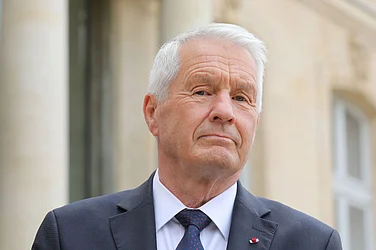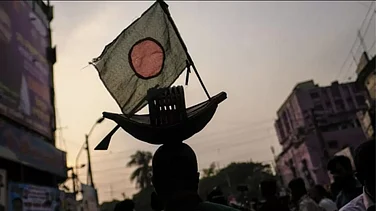In a surprising revelation, Nepal Prime Minister Pushpa Kamal Dahal Prachanda has made remarks that an Indian businessman residing in Nepal had once made efforts to install him as the country's premier. Prachanda made these statements during the launch of the book 'Roads to the Valley: The Legacy of Sardar Pritam Singh in Nepal' on Monday. He acknowledged the significant role played by Sardar Pritam Singh, a pioneer in the Nepalese trucking industry, in strengthening Nepal-India relations.
Prachanda disclosed, "He (Singh) had once made efforts to make me the prime minister. He traveled to Delhi several times and held multiple rounds of talks with political leaders in Kathmandu to make me the prime minister." These remarks have caused a stir, leading to opposition parties demanding the Prime Minister's resignation, as PTI reported.
The main opposition party, Communist Party of Nepal-(Unified Marxist-Leninist) (CPN-UML), disrupted the National Assembly meeting on Wednesday, insisting on the Prime Minister's resignation. Former Prime Minister KP Sharma Oli stated that Prachanda's comments have jeopardized national independence, dignity, the Constitution, and the parliament itself. As a result, the National Assembly and House of Representatives meetings have been postponed, with opposition parties expressing their dissatisfaction and questioning the Prime Minister's legitimacy.
Prachanda has since clarified his controversial remarks, emphasizing that they were misinterpreted to create unrest. Speaking at a training program organized by the All Nepal National Independent Students Union, he clarified that his statements about Sardar Pritam Singh were based on Singh's own words in the book. However, critics argue that caution should have been exercised while discussing such a sensitive issue and that diplomatic language should have been employed to avoid misinterpretation.


























